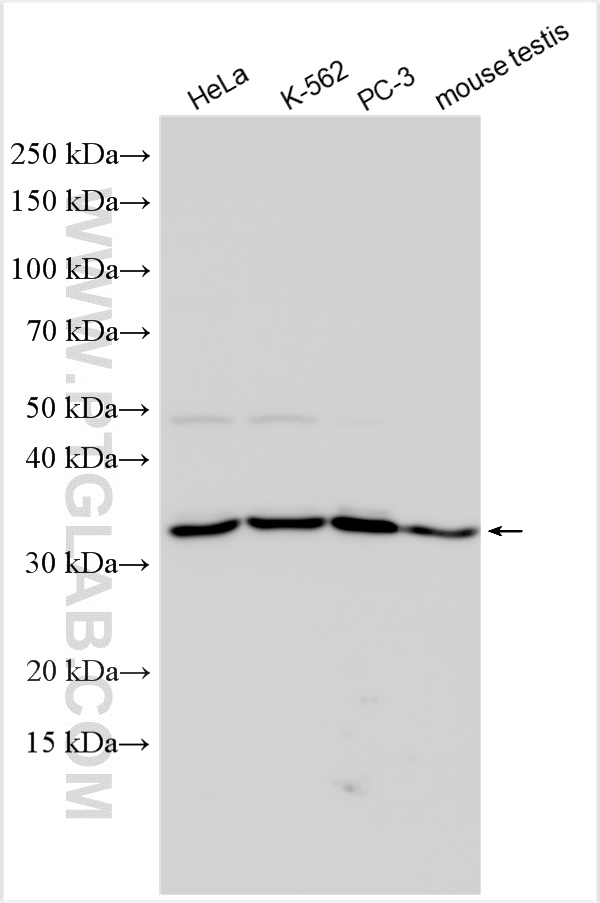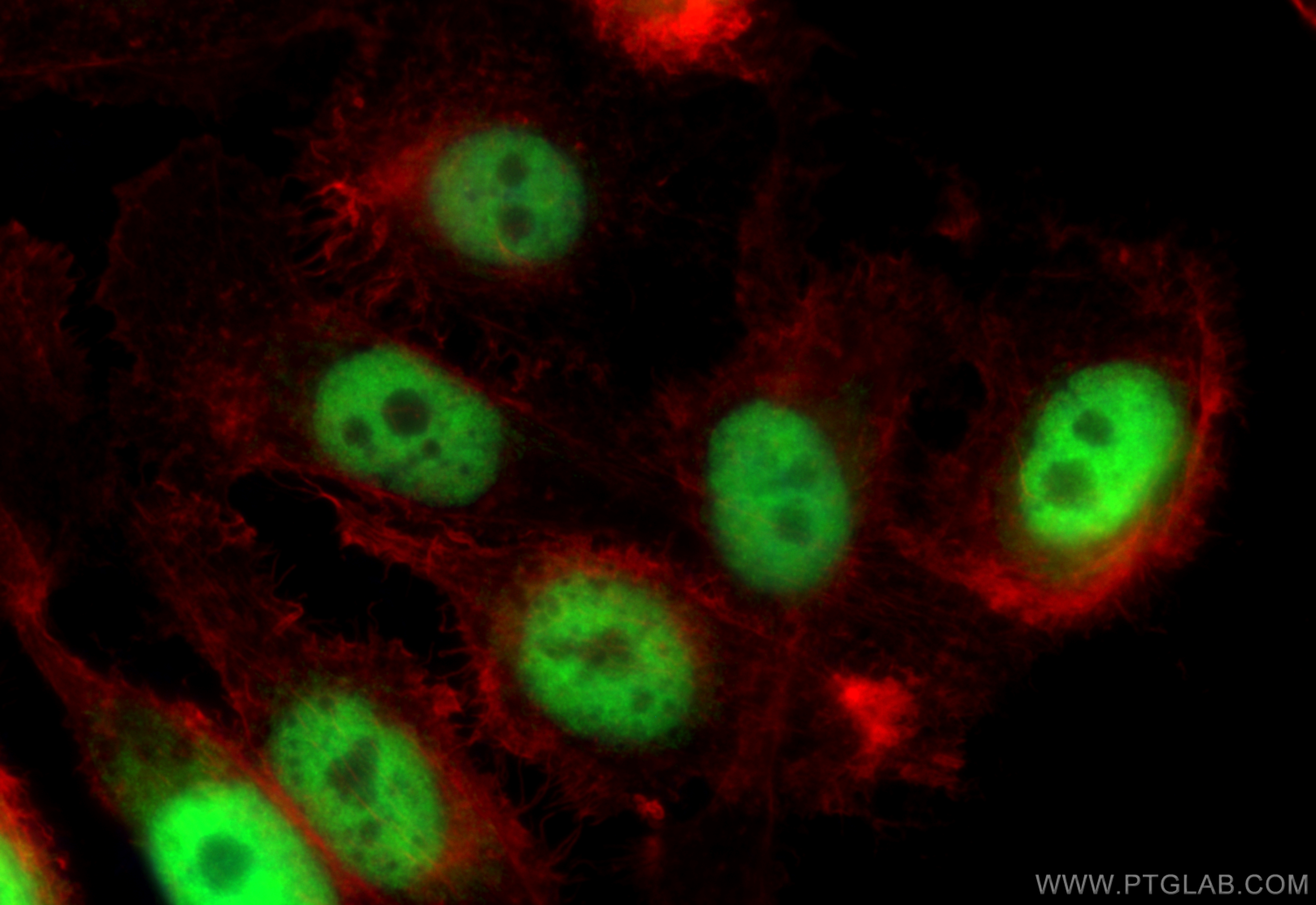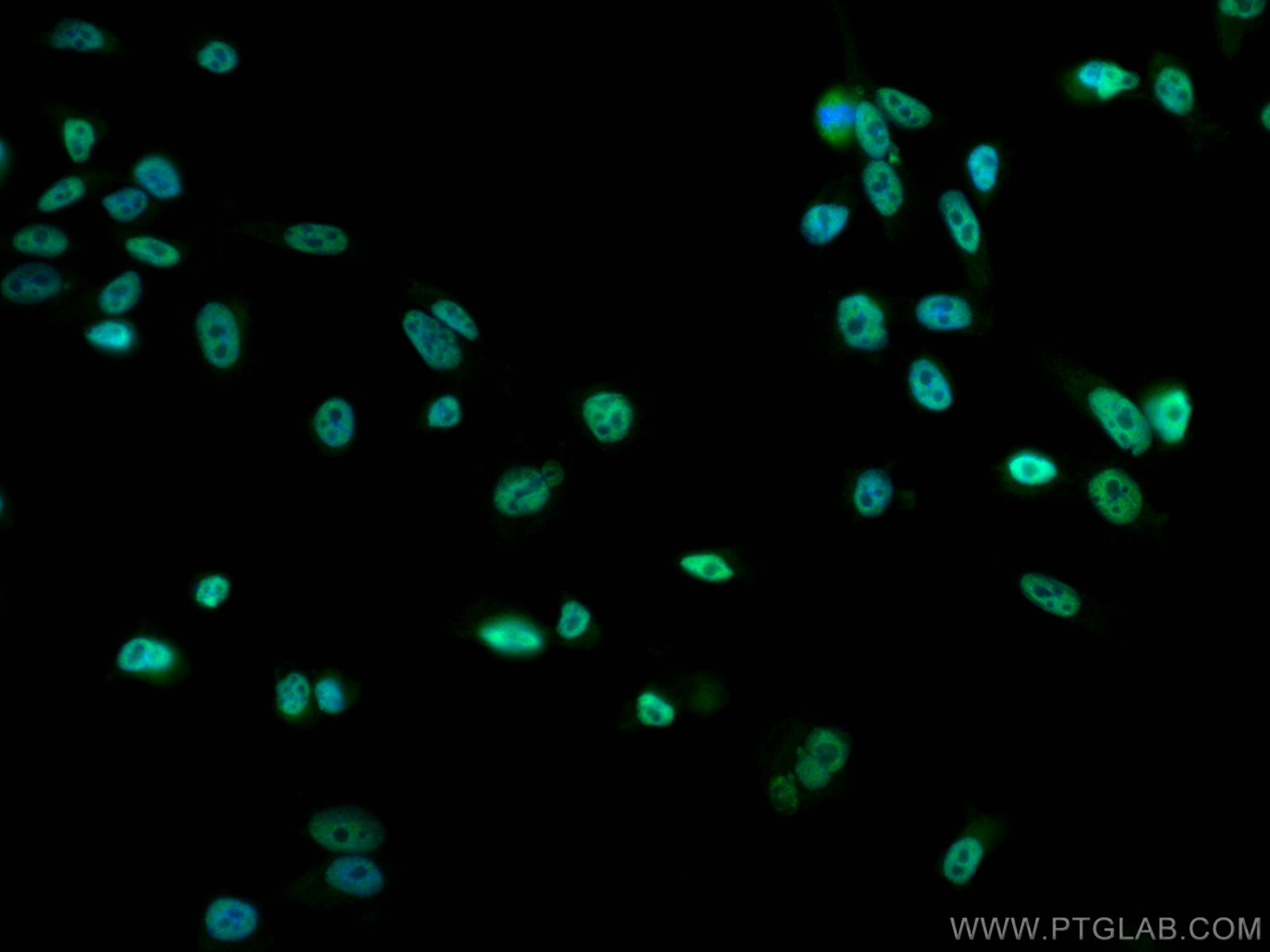验证数据展示
经过测试的应用
| Positive WB detected in | HeLa cells, K-562 cells, PC-3 cells, mouse testis tissue |
| Positive IF/ICC detected in | PC-3 cells |
推荐稀释比
| 应用 | 推荐稀释比 |
|---|---|
| Western Blot (WB) | WB : 1:2000-1:12000 |
| Immunofluorescence (IF)/ICC | IF/ICC : 1:200-1:800 |
| It is recommended that this reagent should be titrated in each testing system to obtain optimal results. | |
| Sample-dependent, Check data in validation data gallery. | |
发表文章中的应用
| WB | See 1 publications below |
| IF | See 1 publications below |
产品信息
17674-1-AP targets HNRNPH3 in WB, IF/ICC, ELISA applications and shows reactivity with human, mouse, rat samples.
| 经测试应用 | WB, IF/ICC, ELISA Application Description |
| 文献引用应用 | WB, IF |
| 经测试反应性 | human, mouse, rat |
| 文献引用反应性 | mouse |
| 免疫原 |
CatNo: Ag11611 Product name: Recombinant human HNRNPH3 protein Source: e coli.-derived, PET28a Tag: 6*His Domain: 1-331 aa of BC039824 Sequence: MDWVMKHNGPNDASDGTVRLRGLPFGCSKEEIVQFFQGLEIVPNGITLTMDYQGRSTGEAFVQFASKEIAENALGKHKERIGHRYIEIFRSSRSEIKGFYDPPRRLLGQRPGPYDRPIGGRGGYYGAGRGSYGGFDDYGGYNNYGYGNDGFDDRMRDGRGMGGHGYGGAGDASSGFHGGHFVHMRGLPFRATENDIANFFSPLNPIRVHIDIGADGRATGEADVEFVTHEDAVAAMSKDKNNMQHRYIELFLNSTPGGGSGMGGSGMGGYGRDGMDNQGGYGSVGRMGMGNNYSGGYGTPDGLGGYGRGGGGSGGYYGQGGMSGGGWRGMY 种属同源性预测 |
| 宿主/亚型 | Rabbit / IgG |
| 抗体类别 | Polyclonal |
| 产品类型 | Antibody |
| 全称 | heterogeneous nuclear ribonucleoprotein H3 (2H9) |
| 别名 | HNRPH3, hnRNP H3, hnRNP 2H9 |
| 计算分子量 | 331 aa, 35 kDa |
| 观测分子量 | 35 kDa |
| GenBank蛋白编号 | BC039824 |
| 基因名称 | HNRNPH3 |
| Gene ID (NCBI) | 3189 |
| RRID | AB_2878425 |
| 偶联类型 | Unconjugated |
| 形式 | Liquid |
| 纯化方式 | Antigen affinity purification |
| UNIPROT ID | P31942 |
| 储存缓冲液 | PBS with 0.02% sodium azide and 50% glycerol, pH 7.3. |
| 储存条件 | Store at -20°C. Stable for one year after shipment. Aliquoting is unnecessary for -20oC storage. |
实验方案
| Product Specific Protocols | |
|---|---|
| IF protocol for HNRNPH3 antibody 17674-1-AP | Download protocol |
| WB protocol for HNRNPH3 antibody 17674-1-AP | Download protocol |
| Standard Protocols | |
|---|---|
| Click here to view our Standard Protocols |
发表文章
| Species | Application | Title |
|---|---|---|
Dis Model Mech Loss of Ranbp2 in motor neurons causes the disruption of nucleocytoplasmic and chemokine signaling and proteostasis of hnRNPH3 and Mmp28, and the development of amyotrophic lateral sclerosis (ALS)-like syndromes. |




